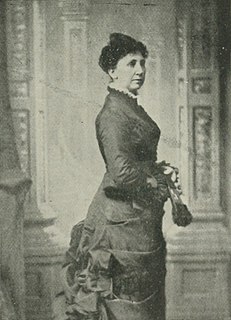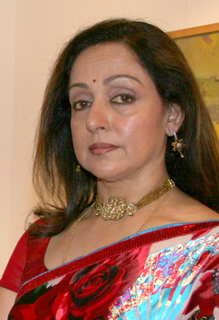A Quote by George Eliot
The vainest woman is never thoroughly conscious of her beauty till she is loved by the man who sets her own passion vibrating in return.
Related Quotes
Sometimes a woman's love of being loved gets the better of her conscience, and though she is agonized at the thought of treating a man cruelly, she encourages him to love her while she doesn't love him at all. Then, when she sees him suffering, her remorse sets in, and she does what she can to repair the wrong.
She had sacrificed her childhood to save her brothers; she loved her family above all else, and her spirits yearned to return home once more, to the wild forest and the land of mystic tales and ancient spirits whence he had taken her. That was the place of her heart, and if he loved her, he must let her go.
It was a good script [Something New]. We have not seen an interracial issue dealt with from a black woman and white man's perspective in this way. And, usually, it's a black man, white woman. I loved the fact that it wasn't about the couple being against the world or the couple against the family. I loved the fact that it was her dealing with her own prejudices that came up, her own guilt, her own shame and embarrassment about what her peers thought.
I never did, nor do I believe I ever shall, give advice to a woman who is setting out on a matrimonial voyage; first, because I never could advise one to marry without her own consent; and, secondly, I know it is to no purpose to advise her to refrain when she has obtained it. A woman very rarely asks an opinion or requires advice on such an occasion, till her resolution is formed; and then it is with the hope and expectation of obtaining a sanction, not that she means to be governed by your disapprobation, that she applies.
She was like me in lineaments-- her eyes Her hair, her features, all, to the very tone Even of her voice, they said were like to mine; But soften'd all, and temper'd into beauty; She had the same lone thoughts and wanderings, The quest of hidden knowledge, and a mind To comprehend the universe: nor these Alone, but with them gentler powers than mine, Pity, and smiles, and tears-- which I had not; And tenderness-- but that I had for her; Humility-- and that I never had. Her faults were mine-- her virtues were her own-- I loved her, and destroy'd her!
There is simply no dignified way for a woman to live alone. Oh, she can get along financially perhaps (though not nearly as well as a man), but emotionally she is never left in peace. Her friends, her family, her fellow workers never let her forget that her husbandlessness, her childlessness - her selfishness, in short - is a reproach to the American way of life.
Why does a dad matter so much to a daughter, in particular? A dad is the one who teaches a daughter what a male is all about. It's the first man in her life--the first man she loves, the first male she tries to please, the first man who says no to her, the first man to discipline her. In effect, he sets her up for success or failure with the opposite sex. Not only that, but she takes cues from how Dad treats Mom as she grows up about what to expect as a woman who is in a relationship with a man. So Dad sets up his daughter's marriage relationship too.
I have one thing you don't,' he murmured against her neck, turning his head and nipping her earlobe. 'What?' His tongue teased her ear. 'Brute strength,' he whispered and removed the keys from her hand even as he captured her mouth with his. He didn't let her up until she kissed him back thoroughly, until her arms slid around his neck and she melted into him. He drove the truck with great satisfaction, smirking at her. 'Manly man, here, woman.
The real trouble about women is that they must always go on trying to adapt themselves to men's theories of women, as they alwayshave done. When a woman is thoroughly herself, she is being what her type of man wants her to be. When a woman is hysterical it's because she doesn't quite know what to be, which pattern to follow, which man's picture of woman to live up to.
A coquette is one that is never to be persuaded out of the passion she has to please, nor out of a good opinion of her own beauty: time and years she regards as things that only wrinkle and decay other women, forgetting that age is written in the face, and that the same dress which became her when she was young now only makes her look older.







































